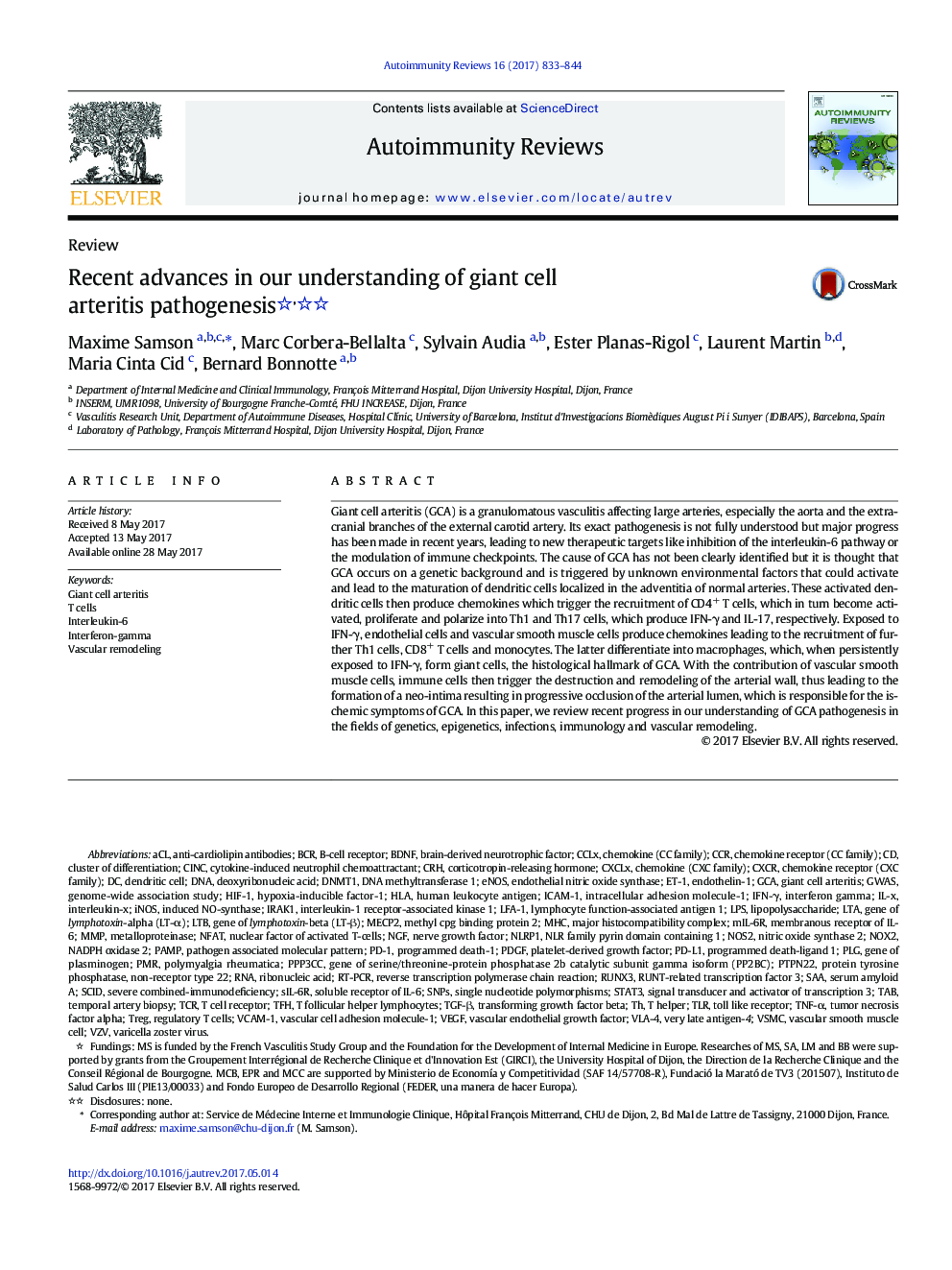| Article ID | Journal | Published Year | Pages | File Type |
|---|---|---|---|---|
| 5665363 | Autoimmunity Reviews | 2017 | 12 Pages |
â¢infection could trigger GCA but no infectious agent has been clearly identifiedâ¢activation of dendritic cells is essential for the recruitment of CD4+ T cellsâ¢Th1 cells produce IFN-γ, which triggers the recruitment of monocytes and CD8+ T cellsâ¢proliferation of myofibroblasts causes intimal hyperplasia leading to vascular occlusionâ¢understanding GCA pathogenesis is essential to develop new therapeutic targets
Giant cell arteritis (GCA) is a granulomatous vasculitis affecting large arteries, especially the aorta and the extracranial branches of the external carotid artery. Its exact pathogenesis is not fully understood but major progress has been made in recent years, leading to new therapeutic targets like inhibition of the interleukin-6 pathway or the modulation of immune checkpoints. The cause of GCA has not been clearly identified but it is thought that GCA occurs on a genetic background and is triggered by unknown environmental factors that could activate and lead to the maturation of dendritic cells localized in the adventitia of normal arteries. These activated dendritic cells then produce chemokines which trigger the recruitment of CD4+ T cells, which in turn become activated, proliferate and polarize into Th1 and Th17 cells, which produce IFN-γ and IL-17, respectively. Exposed to IFN-γ, endothelial cells and vascular smooth muscle cells produce chemokines leading to the recruitment of further Th1 cells, CD8+ T cells and monocytes. The latter differentiate into macrophages, which, when persistently exposed to IFN-γ, form giant cells, the histological hallmark of GCA. With the contribution of vascular smooth muscle cells, immune cells then trigger the destruction and remodeling of the arterial wall, thus leading to the formation of a neo-intima resulting in progressive occlusion of the arterial lumen, which is responsible for the ischemic symptoms of GCA. In this paper, we review recent progress in our understanding of GCA pathogenesis in the fields of genetics, epigenetics, infections, immunology and vascular remodeling.
